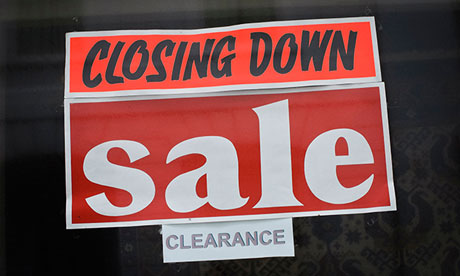The effects of recession on the UK economy
 It is important to mention the value and importance of the retail industry to the economy of the UK. According to Mintel Report (2009), retail industry of the UK is considered to be highly important and contributing factor to the UK economy as it generates 16% of UK Gross Domestic Product. In addition, every third pound is generated through retailers and almost 11% of the UK workforce is employed in this industry. UK has some retail companies that are internationally recognized and growing rapidly. For example, only Tesco has more than 1100 stores within the UK and overseas and planning to expand towards emerging markets such as Hong Kong and India. It is also worth stating that according to Mintel Report (2009) despite high importance and value, UK retailers are considered to be low employee payers although senior level managers are paid relatively well.
It is important to mention the value and importance of the retail industry to the economy of the UK. According to Mintel Report (2009), retail industry of the UK is considered to be highly important and contributing factor to the UK economy as it generates 16% of UK Gross Domestic Product. In addition, every third pound is generated through retailers and almost 11% of the UK workforce is employed in this industry. UK has some retail companies that are internationally recognized and growing rapidly. For example, only Tesco has more than 1100 stores within the UK and overseas and planning to expand towards emerging markets such as Hong Kong and India. It is also worth stating that according to Mintel Report (2009) despite high importance and value, UK retailers are considered to be low employee payers although senior level managers are paid relatively well.
The period of recent financial crisis in the UK was from the second quarter of 2008 to the third quarter of 2009. It started with 6.4% decline in Gross Domestic Product of UK in the beginning of the period and started increasing by 0.4% only at the end of the period. During the recession, UK economy deteriorated continuously leading to high rates of unemployment which is about 5% at the end of the period. This accounted to 800,000 people out of job (Gooberman, 2010).
Another aspect of UK economy and its vulnerability to the financial recession has been discussed in the study conducted by LSE (2008). According to the research, UK economy is vulnerable to the financial crisis due to its reliance and specialization mostly on financial services and trading activities. Decline of the importance of the financial sectors had more negative effect on overall UK economy as a result of higher unemployment rate in the workforces who are employed mostly in financial sectors. This is further followed by sharp decline in consumer spending and decreasing foreign capital inflow.
Chain effect of financial crisis has been discussed in the study conducted by FSB-ICM (2009). The study analyzes the performances of small businesses during the recession to examine the impacts of the recession on these businesses to create a better picture of overall economy. The study suggests that the main negative effect of the recession has been observed in decline in trades thus resulting in lower cash flows which deteriorates the performance of the small businesses for which cash flow is vital. In addition, payment delays from the customers forced many small businesses to close down or at least cut their jobs which in turn resulting in higher unemployment rate. Moreover, limited financial support for these businesses for by the lenders was another effect of the recession that led to vanishing of many businesses and all of the above mentioned factors had combined result in sharp decline in consumer spending and higher unemployment rate (FSB-ICM, 2009).
Long term and short term impacts of the financial recession on the UK economy have been discussed in the studies of Lowth et al (2010). According to the authors, along with obvious short term impacts of the recession on the economy of the UK, there are some long term impacts that cannot be ignored. Short term impacts of global financial crisis are scarcity of financial sources for businesses as well as for public, increased corporate taxation for businesses. Long term impacts on the other hand are higher risk aversion due to which the businesses are not likely to invest in many good opportunities. It also leads to encouraging in savings instead of consuming by the people and all of these have direct impacts on the future performance of the retail industry in the UK.
A study conducted by Costa (2010) suggests that one of the highly affected industries by the global recession in the UK was retail industry as a result of huge declines in sales, particularly, in DIY and furnishing stores. Banks and other borrowers also did not provide the businesses with financial support. This resulted in closing of even well known businesses such as MFI, Woolworth and Blacks as a result of financial recession’s impacts.
References
Costa, M. (2010). The Top 50 British Brands. Marketing Week.
Lowth G, Prowle M, Zhang M (2010) The impact of economic recession on business strategy planning in UK companies, Vol 6, Issue 9.
